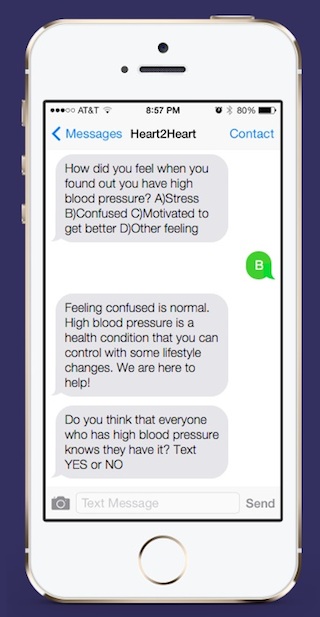 San Francisco-based health texting program developer CareMessage has received $6 million in grants in the past few months from several organizations including Google and The Pershing Foundation.
San Francisco-based health texting program developer CareMessage has received $6 million in grants in the past few months from several organizations including Google and The Pershing Foundation.
Google awarded the group $2.3 million as part of Google.org's Impact Awards in December. The Pershing Foundation led a $3.7 million grant in November with $1.5 million.
The organization's existing backers include David and Lucile Packard Foundation, Y Combinator, Echoing Green, Goldman Sachs, the Franklin and Catherine Johnson Foundation, and Stanford BioDesign.
CareMessage was also a part of Y Combinator's winter 2014 class.
CareMessage builds text message campaigns for providers to deploy for at-risk patients. The campaigns aim to provide health literacy and offer disease self-management tools to patients. CareMessage offers programs for behavior change, including nutrition, smoking cessation, and medication management; chronic disease, including hypertension, congestive heart failure, and COPD; women's health, including postpartum depression and breastfeeding; pediatric health; and mental health.
CareMessage's target customers include medicaid patient populations, for example federally qualified health centers, managed medicaid organizations, and community health centers, CareMessage CEO Vineet Singal told MobiHealthNews. Although Singal added that the company is starting to work with some commercial entities that have medicaid components as well as accountable care organizations.
The texts will help patients understand the factors that could motivate them to change their behavior, learn about medical concepts -- like the relationship between glucose and insulin, remind patients when they are due for a checkup, and remind patients to measure blood glucose or other metrics. The texting campaigns can run for a year or a four- to six-week period. The programs are also multilingual and offer gamified components.
"There are a couple things the funding will enable us to do," Singal said. "One thing is further develop our product. We have a couple of goals for the year in terms of making the product more robust and providing greater insights, reports, and analytics to our customers that are using the technology for some of their outreach and disease management efforts. Also, making a lot of the data more actionable is one of our goals as well. We want to make our technology more interoperable. We already have an API but we want to further strengthen our API and further develop integrations with EMR systems. We already have a few that we've developed, but we want to increase that number."
The nonprofit currently has a few beta customers that are using the API.
"[The API] allows external health technology companies or clinics and hospitals to be able to leverage the functionalities that are developed by our team on the product side but also, on the flip side, it allows them to extract data that is generated by the campaign," Singal said. "All of the text and voice messaging campaigns, whether they give you appointment reminders, whether they give you clinical outreach, or operational outreach, all of that data they recorded is extractable through the API. And that's something that customers are also interested in. Not only using the technology, they also want to know how it's going, what's the data coming back."
When CareMessage presented at the Y Combinator demo day in March 2014, the company said it was working with 100,000 patients in 16 states, but the company now works with 80 customers serving more than 200,000 patients, still in 16 states.
Currently CareMessage customers include Stanford, Sinai Health System in Chicago, and AltaMed.

















